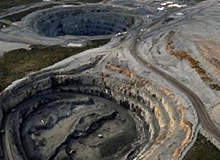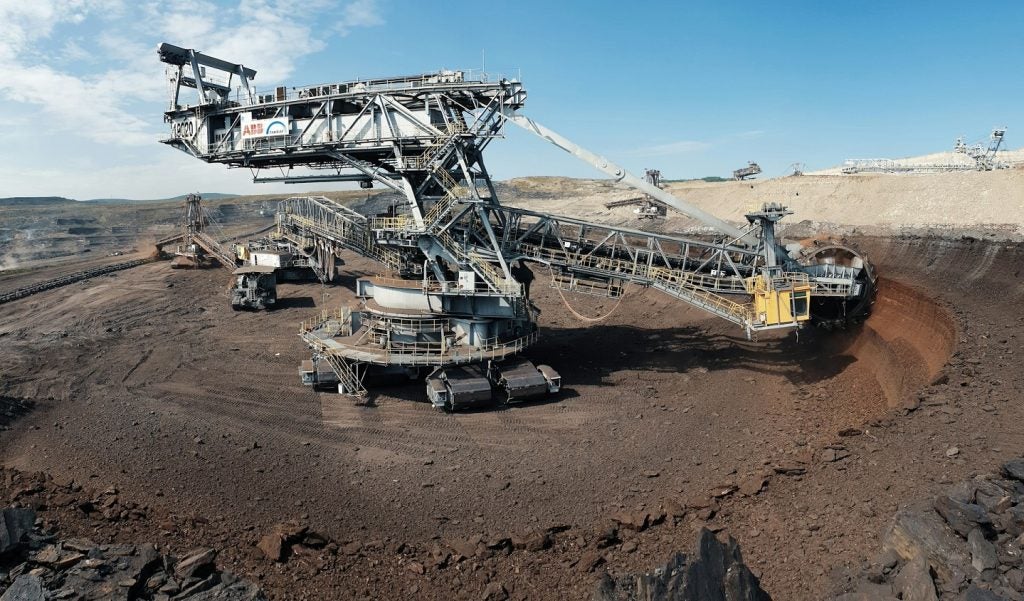
Last November, Australian mining giant BHP-Billiton withdrew its $38bn bid for Potash Corporation of Saskatchewan (PotashCorp). The Canadian Federal Government blocked the takeover, saying it was not to Canada’s benefit.
Canadian Minister of industry Tony Clement was blunt: “I am not satisfied that the proposed transaction is likely to be of net benefit to Canada. I came to this decision after a careful and rigorous review of the proposed transaction. BHP Billiton has 30 days to make any additional representations and submit any undertakings.”
Clement cited the confidentiality provisions of the Investment Canada Act as prohibiting him from discussing the specifics of the PotashCorp case. BHP-Billiton simply replied that it could not meet the conditions imposed by the Canadian Government.
The Investment Canada Act is clear in its provisions: the federal government has the right to scrutinise foreign bids of over $299m for Canadian assets. Only rarely has it been invoked – the current question is whether the BHP-Billiton decision is an exception that tests the rule.
Net-benefit?
Comment was immediately forthcoming, Andrew Coyne, national editor of Maclean’s, a highly influential Canadian news magazine, pointed out that the mineral itself would still be Canadian – the right to extract is what would become Australian, while Saskatchewan would receive royalties from BHP-Billiton.
In fact, Coyne exchanged the traditional “net-benefit to Canada test” for a “net-harm to Canada test.” Coyne asked, “How does the sale harm Canada at a time when the country needs foreign investment to pay for all its pressing bills?” Baby-boomer pension funds were one example he quoted.
How well do you really know your competitors?
Access the most comprehensive Company Profiles on the market, powered by GlobalData. Save hours of research. Gain competitive edge.

Thank you!
Your download email will arrive shortly
Not ready to buy yet? Download a free sample
We are confident about the unique quality of our Company Profiles. However, we want you to make the most beneficial decision for your business, so we offer a free sample that you can download by submitting the below form
By GlobalDataLandmark decision
Views on mega-acquisitions within the industry are varied. One analyst who preferred to remain anonymous looked back to previous takeovers, citing the complex and expensive acquisition by Noranda of Falconbridge and the two companies’ subsequent merger in 2005 (not to mention their acquisition by Swiss-based Xstrata within another year).
On being questioned as to whether he thought that BHP-Billiton’s rejection in 2010 was a landmark decision which would mean a succession of bids being blocked his reply was that he hoped not and that the federal government would abstain from intervening.
One factor which makes the formulation of a definitive Canadian policy on acquisitions so difficult is the power held by the country’s provinces and territories; each of them is keen to guard their ability to regulate and authorise extraction.
This is confirmed by the highly influential Prospectors and Developers Association of Canada (PDAC). A briefing from the PDAC Communications Department is revealing in that it confirms that no two provinces are alike in mining policy: “British Columbia has just started a very interesting one-stop shopping process to obtain permission to mine. The concept is ‘one project, one window, one process.’ In fact, most new projects have opened up in the west.”
More varied are the provinces and territories responses to uranium. The PDAC again: “there is a uranium moratorium in Newfoundland and Labrador and in British Columbia but not in Saskatchewan.” The latter is now the world’s largest uranium-producing region and accounts for 30% of annual world production.
The PDAC is keen to stress that Canada is not in internal turmoil over the BHP-Billiton veto, “The focus is on new discoveries using new technologies. New technology means that Canada is not worked out.”
Industrial response
Is there a typical response to the situation from inside the industry? And where does this leave would-be developers of Canada’s mining resources?
Well, unsurprisingly, BHP-Billiton has not pulled the plug on its existing commitments within Canada. The company has been operating in the region for around 40 years, not least for over 20 years in the Northwest Territories, where the crucial EKATI diamond mine produces 4m carats of rough diamonds annually – or 6% of global production by value.
Behind the recent headlines BHP-Billiton is even developing and researching its own potash mine in Saskatchewan. The Jansen Project, 140km east of Saskatoon, has just moved into the feasibility study stage and an Environmental Impact Assessment has been submitted.
It’s also worth noting that there was a dispute between BHP-Billiton and PotashCorp even before the controversial bid. The latter questioned BHP-Billiton’s determination to develop the Jansen site if it was allowed to acquire PotashCorp. In fact, BHP-Billiton has just declared this January that it will invest $240m in, among other things, engineering expertise, equipment and ground freezing for shaft sinking.
The immediate future
For the immediate future, however, there will be at least one controversial bid: as this article is being written a $5.4bn partnership between EnCana and Petro-China which would produce China’s largest Canadian energy investment to date is being filed with Industry Minister Clement. The criteria will be the same – the Minister has the right to veto on the grounds of natural interest.
In fact, mining in Canada is highly valued and appreciated (there is even a national mining week each year). Tax credits for minerals exploration have just been extended, helping smaller mining companies obtain easier access to the venture capital they need for exploration.
Whatever the difficulties experienced by BHP-Billiton, there are still opportunities for investment in Canada. British Columbia, uranium ban or not, has been celebrating its successes for 2010.
Randy Hawes, BC’s Minister of State for Mining, enthusiastically summarised local exploration at January’s Mineral Roundup 2011.
Last year, Hawes noted, witnessed $322m of mineral exploration in BC, the third highest ever, and more than double 2009’s total. In the same speech, he was optimistic, to put it mildly: “This is a remarkable turnaround for the mining industry, which shows continued steady growth from the lows of the 1990s. Policies put in place by this government have helped give the minerals sector the resilience to withstand the economic downturn that we’ve experienced recently, providing thousands of high-paying jobs in all corners of the province.”
With that kind of encouragement at provincial level, vetoes are likely to be rare. BHP-Billiton’s problem should not be seen as the norm.







